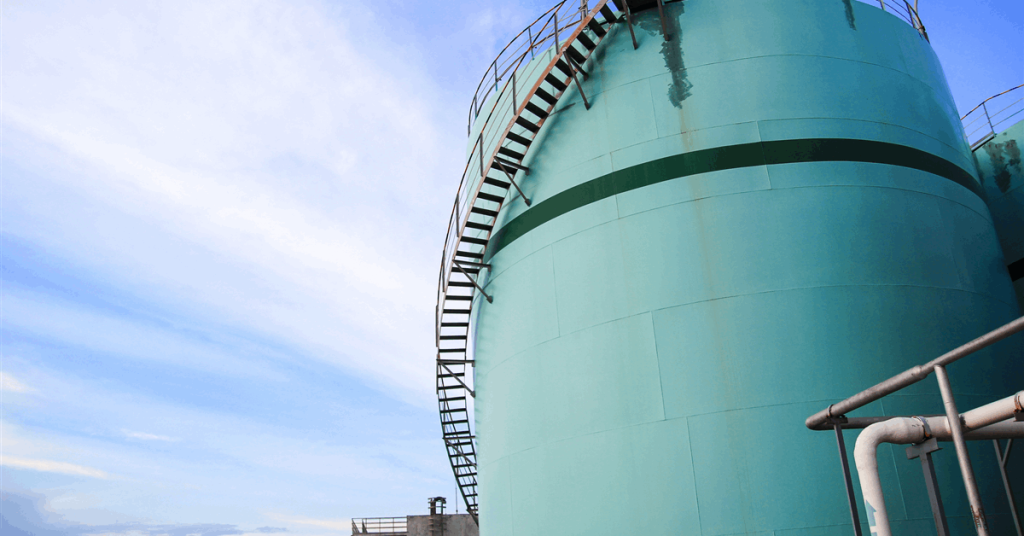Eni SpA said Thursday it had launched the authorization process for an Environmental Impact Assessment to build a biorefinery and a chemical recycling plant in Sicily, after receiving approval from Italy’s Environment and Energy Security Ministry.
Designed to produce up to 500,000 metric tons per annum (MMtpa) of hydrogenated vegetable oil (HVO) diesel and sustainable aviation fuel (SAF), the Priolo project will rise on the site of an Eni ethylene plant set to be decommissioned, the state-backed energy major said in a press release.
It will be Eni’s second biorefinery in Sicily, after the Gela plant, which began biofuel production 2019 after being transformed from a petrochemical site, according to Eni.
The Priolo biorefinery will be fed mainly by vegetable waste and oils and animal fats, Eni said.
Besides the Ecofining™ plant, the project will include a biogenic feedstock pre-treatment unit and a hydrogen production plant, it said.
Meanwhile the project’s chemical recycling unit will have a processing capacity of 40,000 MMtpa and produce around 32,000 MMtpa of pyrolysis oil, Eni said.
The recycling plant will use the proprietary Hoop technology of Eni’s chemicals business Versalis SpA, based on the pyrolysis of mixed plastic packaging waste.
The Priolo project will be the first deployment of the technology at a commercial scale, after the decommissioning of a demonstration plant at the Versalis plant in Mantua in June, Eni said.
“This technology, which complements mechanical recycling, transforms mixed plastic waste into raw material for the production of new plastic products suitable for all applications, including food contact and pharmaceutical packaging”, Eni said.
Developed from a joint project with Italian engineering company Servizi di Ricerche e Sviluppo SRL, the technology has high material recovery yields and feedstock flexibility, according to Eni.
Last month Eni said it had received approval from the ministry to convert several units at the Sannazzaro de’ Burgondi refinery in Pavia into a biorefinery.
The refinery will continue traditional operations alongside a new processing capacity of 550,000 MMtpa for biofuel feedstock, mainly waste and residues. Expected to start operations 2028, the biorefinery will have the flexibility to produce SAF and HVO diesel.
“Eni has now started the authorization process and has filed an application for Environmental Impact Assessment”, Eni said in a press release September 23.
“The project involves converting the existing Hydrocracker unit using Ecofining™ technology and constructing a pre-treatment unit for waste and residues, which are the main biogenic feedstocks Enilive uses to produce HVO biofuels”, Eni added. Enilive is Eni’s biofuels arm.
“The new Sannazzaro biorefinery will strengthen the site’s strategic role in supplying traditional jet fuel and SAF to north-west Italian airports, via both the pipeline connection to Milan Malpensa airport and depots connected to the refinery near other airports”, it said.
“Through Enilive, Eni is already the second-largest producer of HVO biofuels in Europe, including both diesel and biojet (SAF)”, the company said.
Eni has set goals to grow its biorefining capacity from the current 1.65 million metric tons per annum (MMtpa) to over three million by 2028 and more than five MMtpa by 2030, with the potential to produce up to two MMtpa of SAF by 2030.
Eni’s current biofuels production come from two Italian plants in Venice and Gela and a United States plant in Louisiana, operated under its 50 percent-owned joint venture St Bernard Renewables LLC, according to the company.
“A third Italian biorefinery is due to come on stream in Livorno in 2026, followed by two plants currently under construction in Malaysia and South Korea; a further biorefinery in Italy has been announced for Priolo, Sicily”, Eni said.
To contact the author, email jov.onsat@rigzone.com
Generated by readers, the comments included herein do not reflect the views and opinions of Rigzone. All comments are subject to editorial review. Off-topic, inappropriate or insulting comments will be removed.
element
var scriptTag = document.createElement(‘script’);
scriptTag.src = url;
scriptTag.async = true;
scriptTag.onload = implementationCode;
scriptTag.onreadystatechange = implementationCode;
location.appendChild(scriptTag);
};
var div = document.getElementById(‘rigzonelogo’);
div.innerHTML += ” +
‘‘ +
”;
var initJobSearch = function () {
//console.log(“call back”);
}
var addMetaPixel = function () {
if (-1 > -1 || -1 > -1) {
/*Meta Pixel Code*/
!function(f,b,e,v,n,t,s)
{if(f.fbq)return;n=f.fbq=function(){n.callMethod?
n.callMethod.apply(n,arguments):n.queue.push(arguments)};
if(!f._fbq)f._fbq=n;n.push=n;n.loaded=!0;n.version=’2.0′;
n.queue=[];t=b.createElement(e);t.async=!0;
t.src=v;s=b.getElementsByTagName(e)[0];
s.parentNode.insertBefore(t,s)}(window, document,’script’,
‘https://connect.facebook.net/en_US/fbevents.js’);
fbq(‘init’, ‘1517407191885185’);
fbq(‘track’, ‘PageView’);
/*End Meta Pixel Code*/
} else if (0 > -1 && 89 > -1)
{
/*Meta Pixel Code*/
!function(f,b,e,v,n,t,s)
{if(f.fbq)return;n=f.fbq=function(){n.callMethod?
n.callMethod.apply(n,arguments):n.queue.push(arguments)};
if(!f._fbq)f._fbq=n;n.push=n;n.loaded=!0;n.version=’2.0′;
n.queue=[];t=b.createElement(e);t.async=!0;
t.src=v;s=b.getElementsByTagName(e)[0];
s.parentNode.insertBefore(t,s)}(window, document,’script’,
‘https://connect.facebook.net/en_US/fbevents.js’);
fbq(‘init’, ‘1517407191885185’);
fbq(‘track’, ‘PageView’);
/*End Meta Pixel Code*/
}
}
// function gtmFunctionForLayout()
// {
//loadJS(“https://www.googletagmanager.com/gtag/js?id=G-K6ZDLWV6VX”, initJobSearch, document.body);
//}
// window.onload = (e => {
// setTimeout(
// function () {
// document.addEventListener(“DOMContentLoaded”, function () {
// // Select all anchor elements with class ‘ui-tabs-anchor’
// const anchors = document.querySelectorAll(‘a .ui-tabs-anchor’);
// // Loop through each anchor and remove the role attribute if it is set to “presentation”
// anchors.forEach(anchor => {
// if (anchor.getAttribute(‘role’) === ‘presentation’) {
// anchor.removeAttribute(‘role’);
// }
// });
// });
// }
// , 200);
//});

